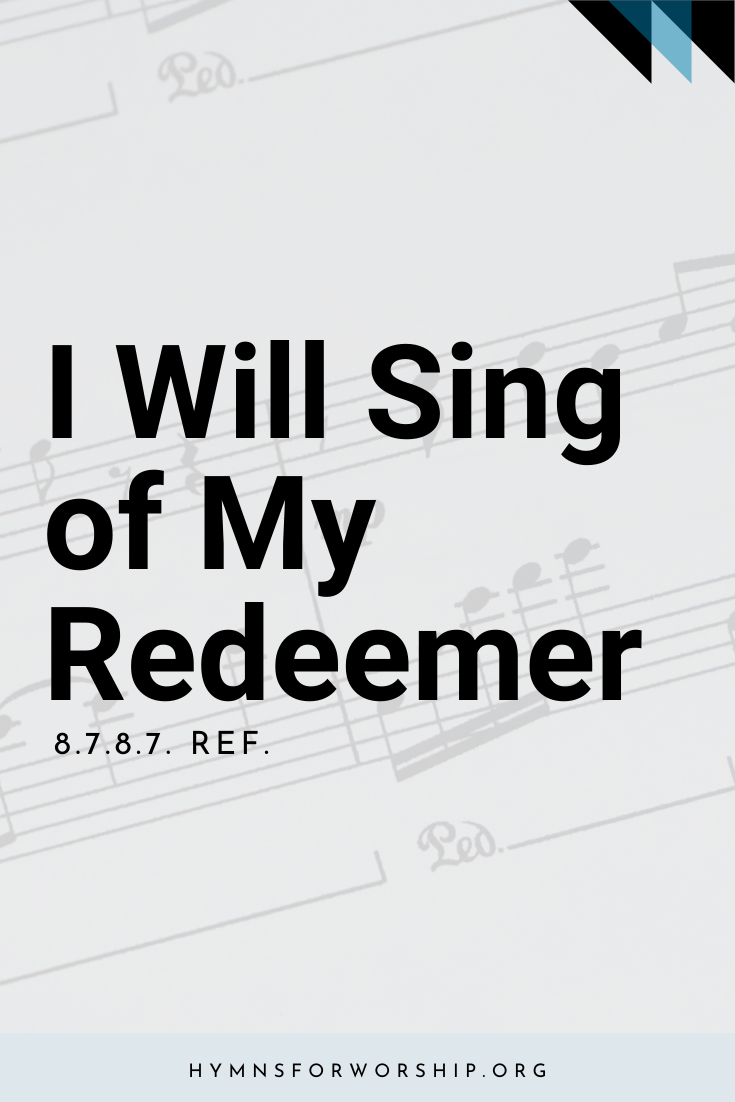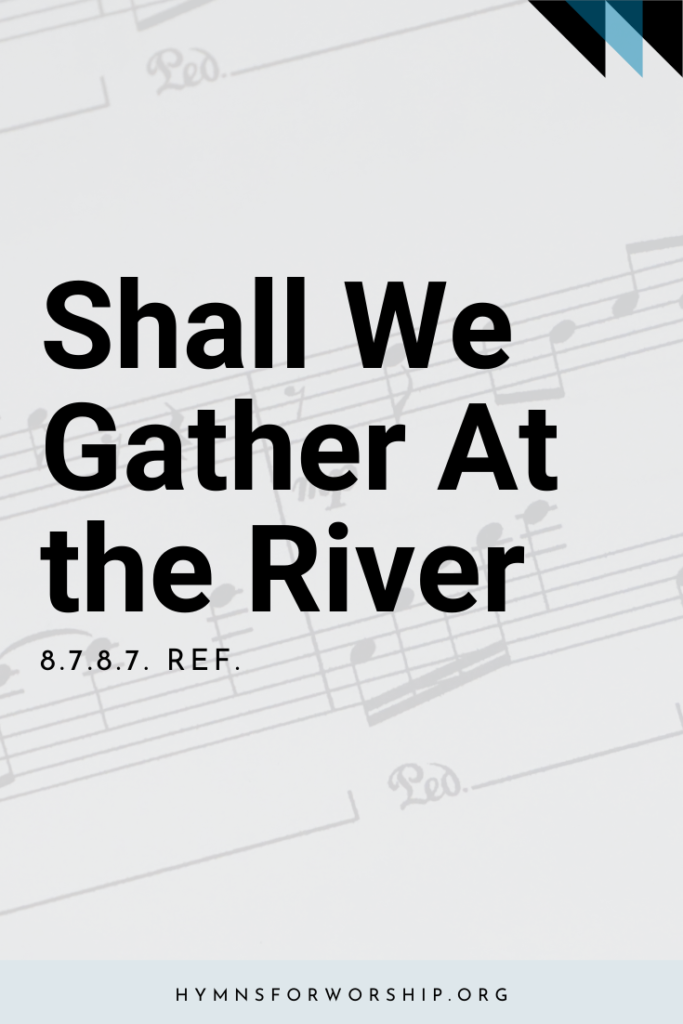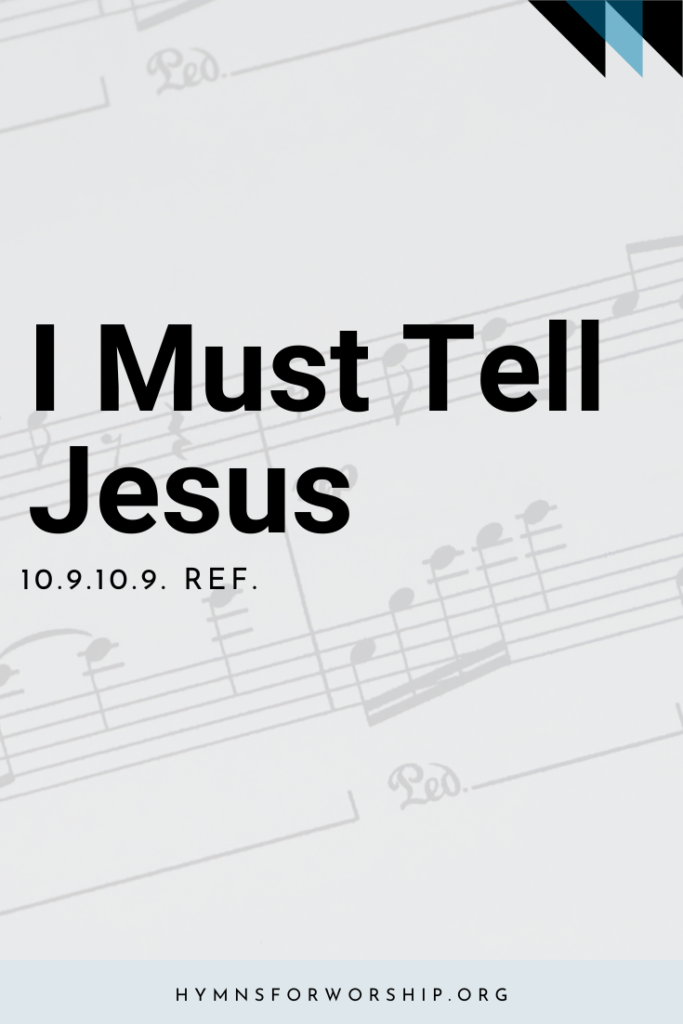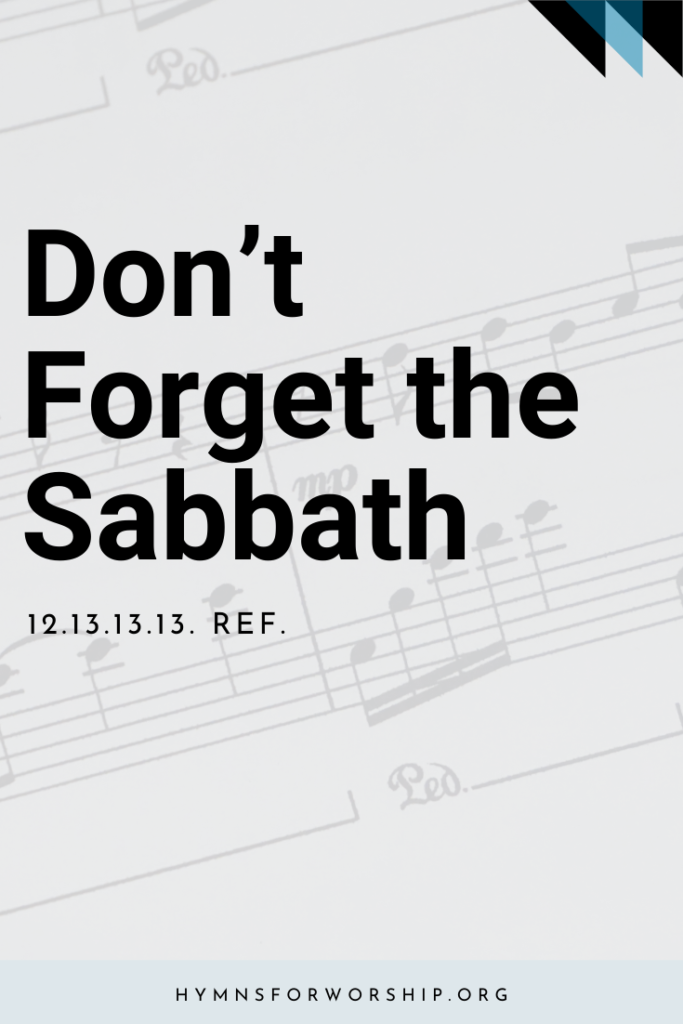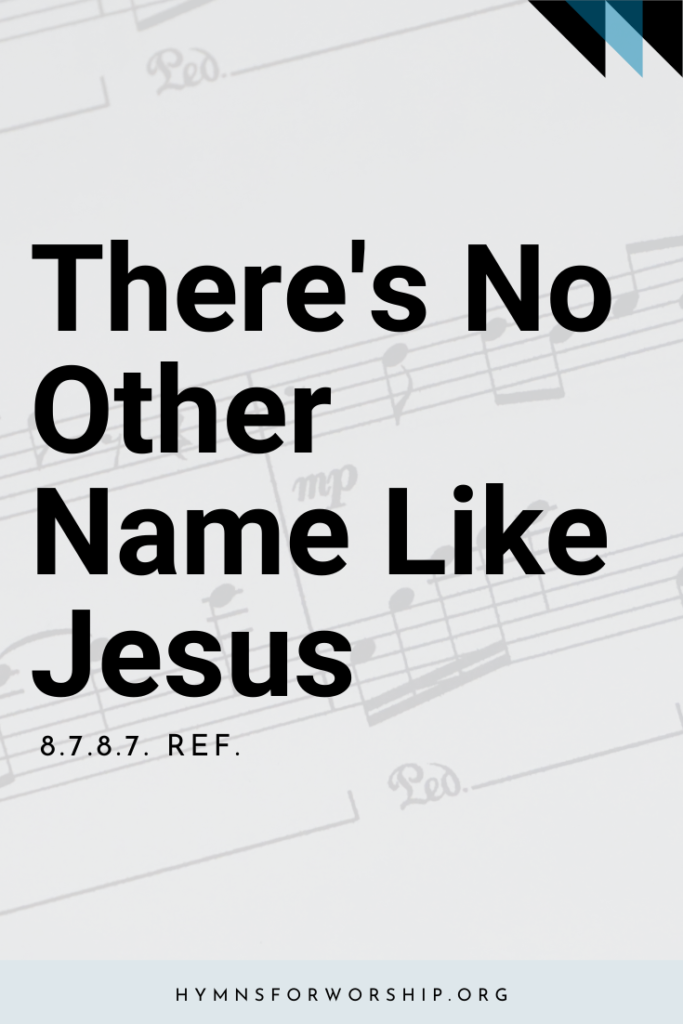GOSPEL >> Salvation & Redemption
SDAH 343
I will sing of my Redeemer,
And His wondrous love to me;
On the cruel cross He suffered,
From the curse to set me free.
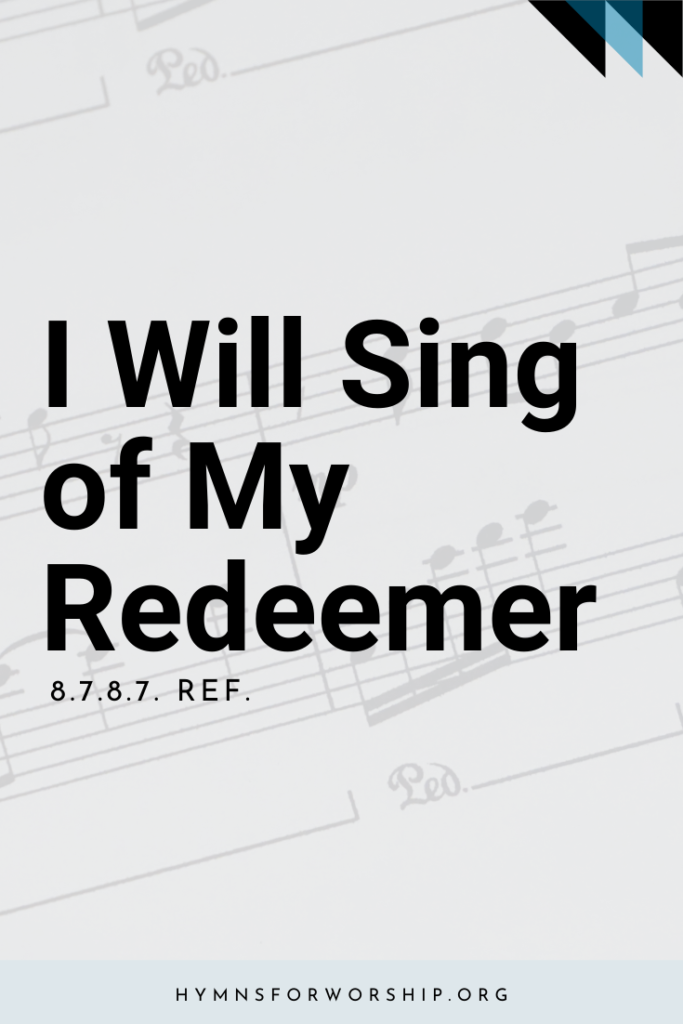

Text
1
I will sing of my Redeemer,
And His wondrous love to me;
On the cruel cross He suffered,
From the curse to set me free.
Refrain
Sing, oh sing, of my Redeemer,
With His blood, He purchased me.
On the cross, He sealed my pardon,
Paid the debt, and made me free.
2
I will tell the wondrous story,
How my lost estate to save,
In His boundless love and mercy,
He the ransom freely gave.
3
I will sing of my Redeemer,
And His heavenly love to me;
He from death to life hath brought me,
Son of God with Him to be.

Hymn Info
Biblical Reference
(a) Gal 3:13 (b) 1 Tim 2:6 (c) 1 Cor 1557 (r) John 8:32
Author
Philip P. Bliss (1838-1876)
Year Published
1876
Metrical Number
8.7.8.7.Ref.
Composer
James McGranahan (1840-1907)
Year Composed
1877
Alternate Tune
HYFRYDOL, SDAH Nos. 167, 204
Hymn Score
Audio Guides
Watch
Notes
Get to know the hymns a little deeper with the SDA Hymnal Companion. Use our song leader’s notes to engage your congregation in singing with understanding. Even better, involve kids in learning this hymn with our homeschooling materials.
It’s time to praise God for what He has done for our salvation. As He has redeemed the Israelites from their bondage in Egypt, He has also redeemed us from our bondage in sin. (Lesson 7, 2nd Quarter 2021 – Wednesday, God and Israel, 5/12/2021)
Redemption in Jesus can be ours by faith and not our own works. Indeed, no work we do are good enough to redeem us. Thus, we need Jesus, our Redeemer. (Lesson 5, 1st Quarter 2021 -Thursday, You Comforted Me, 1/28/2021)
The words of this hymn were found with other manuscripts in Philip Bliss’s trunk, which survived the train wreck at Ashtabula, Ohio, that took his life (see SDAH 286). James McGranahan (1840-1907) wrote the music for these words while he was on a trip to Chicago. He arranged to have it sung for the first time, by a quartet of male voices, at the Chicago tabernacle meetings. The relating of the circumstances under which the words were found added interest to the words themselves, a dying testimony, as it were, of Bliss’s personal faith.
George C. Stebbins (1846-1945; see Biographies), one of the quartet to first sing the song, tells how he later recorded it: “I had been singing a great deal in New England, and near the close of our meetings in one city, an Edison phonograph- the most startling invention of that age- was being exhibited. It was suggested that if I could be secured to sing into it and the fact made known in the community, it might serve to bring a larger number of people to the entertainment. I was accordingly invited ‘to make a record’ as it is now called, which I did in the hall where the meetings had recently been held, and the selection I chose was ‘I Will Sing of My Redeemer.’ The record was made on a cylinder wrapped in tinfoil, which was turned by hand both in recording and in reproducing, as the mechanical device now in use had not been provided at that time, and when it was made, I stepped aside and heard myself sing. I remember . . . the novel experience, as I had never seen a phonograph before, and the hearing of my own voice, and every word with striking distinctness enunciated, and even my characteristic manner of singing, modulation of voice and phrasing, produced a unique sensation’’ (Reminiscences and Gospel Hymn Stories).
This combination of words and music was first printed in Welcome Tidings, A New Collection for Sunday School, 1877, compiled by Robert Lowry (see SDAH 422), William H. Doane (see Biographies), and Ira D. Sankey (see Biographies). The next year McGranahan published the male voice arrangement in his Gospel Male Choir. For further comments on James McGranahan, see SDAH 195.
The original refrain of McGranahan’s music was in a meter of 12/8, and involved many more repeated notes and words in the tenor and bass. The SDAH committee elected to use this shorter, simpler version that keeps the 9/8 meter throughout.

